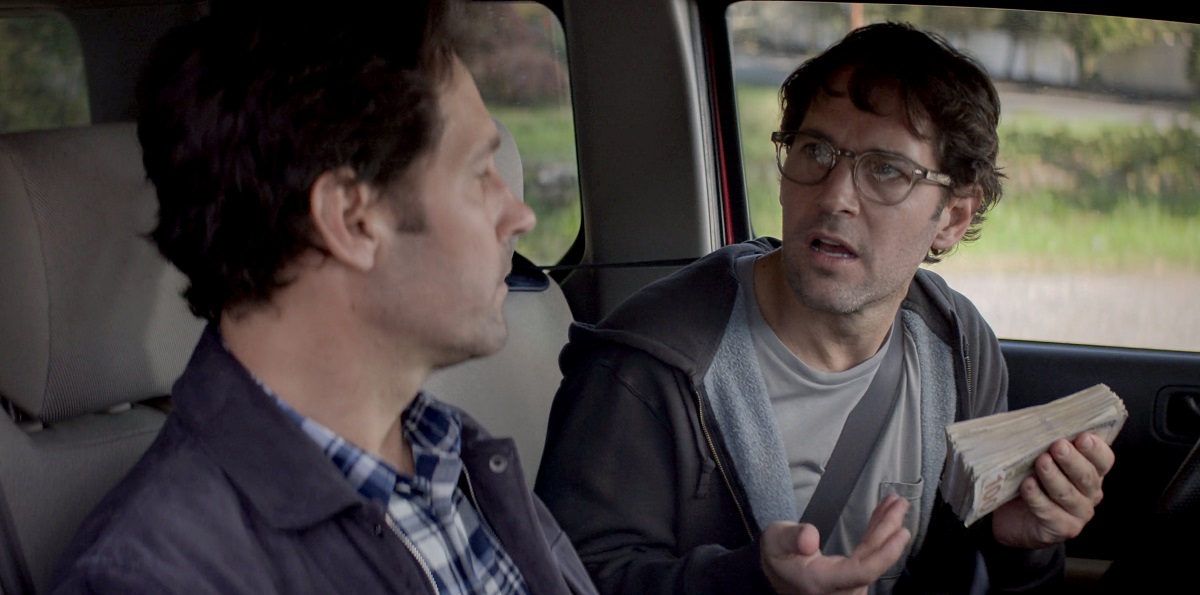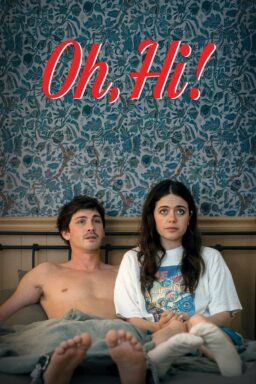Echoes of Franz Kafka and Charlie Kaufman permeate Netflix’s new dark comedy “Living with Yourself,” enjoyable enough as a vehicle for the always-fun Paul Rudd and relative newcomer Aisling Bea, even if it doesn’t quite add up to as much as its concept promises. There are times when Timothy Greenberg’s comedy feels just on the verge of saying something relatively deep about the human condition, but it almost pulls back from its own surreal premise, too focused on the relationship drama at its center to really dig into what its characters and their foibles say about the human condition. “Living with Yourself” is at its best when at its strangest, and my initial hope that it would truly get crazy like, for example, fearless and surreal shows like “Maniac” or “The OA,” was tempered when I realized this was a bit closer to “Multiplicity” than “Being John Malkovich.” Still, there’s enough joy to be had in double the Rudd to warrant a look.
We are constantly sold products that promise a “better you,” whether they’re pharmaceuticals, new jobs, diet plans, gym memberships, or spa treatments. It’s that last one that attracts Miles, an average suburbanite going through the ennui of middle age. His marriage (to Bea’s Kate) is fine but stressed. They don’t really communicate like they used to and Miles seems to be avoiding the issue of fertility tests to help them conceive a child. Miles is also a dull bore at work, shown up by an ad agency co-worker played by Desmin Borges of “You’re the Worst,” who advises Miles the way to break out of his rut: Top Happy Spa. They promise a “whole new you.”
And that’s exactly what they deliver. It’s revealed in the premiere that the spa is really cloning customers and then killing and burying the original, creating a factory-fresh “you.” But they screw up with Miles, who digs himself out of his burial and comes home to find, well, a seemingly better version of himself coming down the stairs. My initial concern that the eight-episode series would just be wacky ways to keep the “double the husband” truth from Kate were luckily unfounded. Without spoiling anything, “Living with Yourself” has the right title as it’s more about two versions of Miles trying to co-exist than anything else. In doing so, both versions reveal problems. Sure, Original Miles is a schlub, but he’s got a history that New Miles can’t possibly replicate. I really love the idea that there’s something about the human existence that can’t be simply copied in our DNA, and it’s primarily shared by history and human connection.

Obviously, there are some really deep ideas in “Living with Yourself,” and I wish the writers leaned into them even more. Every time an interesting philosophical underpinning reveals itself, the show shuffles off to what is really a very crowded plot for eight episodes that all run under half an hour. The best comparison here may be “Russian Doll,” another Netflix hit from a “Twilight Zone”-esque concept that went by so quickly that most people watched it one sitting. It will be very easy for people to do that with “Living with Yourself,” but it doesn’t feel as deep or emotionally resonant as “Doll.” It’s proof that a show can be clever and fun, but still feel like it’s lacking that something extra that takes a program from good to great.
Maybe the show gets there in season two—and they do leave it open for that possibility—and I’ll look back on this year as the prologue to brilliance. To be fair, Rudd and Bea are both very good, not only having believable chemistry but smartly delineating between the two Miles and Kate’s relationship with both. I would happily spend another four hours with both of them. (Or should that be all three of them?) Until then, I’m mostly satisfied rolling around this clever little program in my memory, wondering what I would do with another me, and considering if this is some sort of confession as to how Mr. Rudd stays looking so young.
Whole season screened for review.












